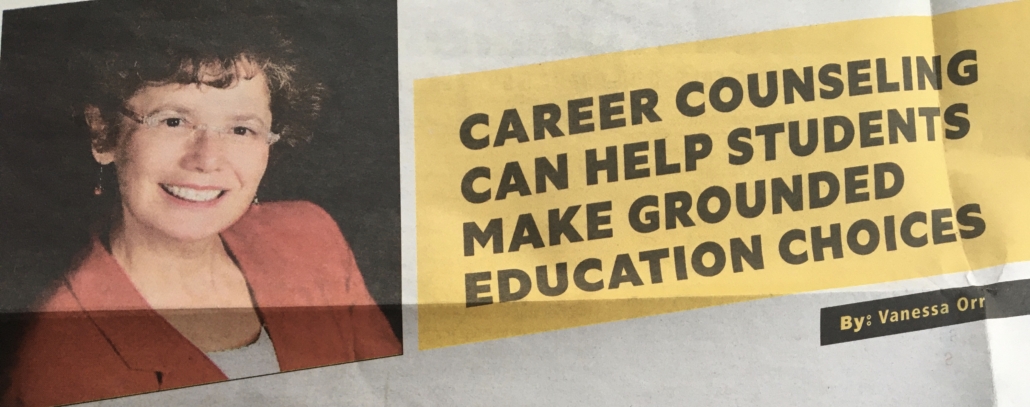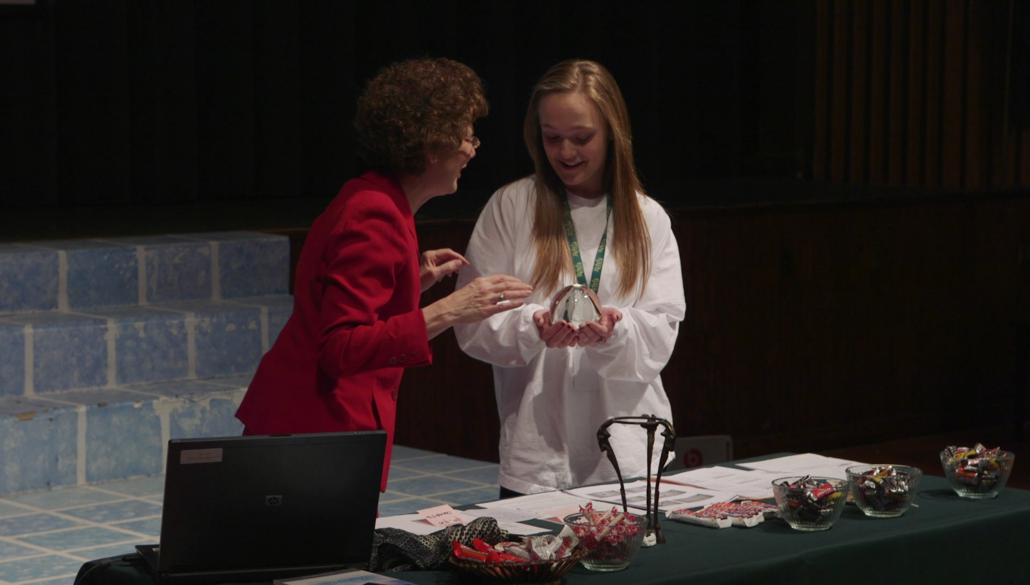I was thrilled to be the sole expert interviewed for an article by the Pittsburgh Post-Gazette for their March 20, 2022 Spring Education Guide. Reporter Vanessa Orr wrote the extensive piece, Career Counseling Can Help Students Make Grounded Choices. I hope you can share the article (below and linked) with parents of any high school students. I offer a short four-session High School Advising Package to help with choices for education paths at all levels, including apprenticeships as well as the gap year choice. Sophomore year is the ideal time.

March 20, 2022
Imagine spending thousands of dollars on a college education and then realizing that the career field you majored in wasn’t really what you wanted to do. It happens all the time, and not only is it a waste of money to pursue the wrong degree, but if you have to go back to school, it can cost you a lot more time in the long run.
Finding out a student’s interests, as well as what they’re good at, is one of the goals of career coaching.

“Students and parents are often so focused on choosing a college and picking a major that they’re not always looking at the big picture,” explains Karen Litzinger, MA, LPC, of Litzinger Career Consulting. “Are they making a grounded choice, and what careers connect to it?
“Rarely do high school students undergo a comprehensive personalized career assessment, which involves first looking at yourself in terms of four things—interests, skills, values and personality,” she continues. “The other half is exploring what’s out there in terms of majors and careers.”
Considering that the U.S. Department of Education reports that roughly one-third of students in bachelor’s degree programs and 28 percent of those in associate’s degree programs change majors within three years of enrolling, it’s important that students have a good handle on what they want out of an education. About 1 in 10 students change majors more than once.
“This is an indication that students are not making the best or most grounded decisions,” says Litzinger. “Ideally, they should network with people in a few fields of interest or job shadow or volunteer to test out a career before making that decision.
This is especially important when considering how much it costs to go to college.

“People graduate with tens of thousands of dollars in debt—it’s a national crisis and it definitely limits what one can do in terms of career choices,” says Litzinger. “This type of debt also impacts things like the ability to buy a house or to get married.”
Litzinger advises the students that she coaches to be open to a wide range of options.
“For decades, people viewed college as the only ticket to success, but now society is starting to realize that there are high-paying, highly skilled jobs that can be very rewarding in the trades,” she says. “I always bring that up as part of the landscape because a bachelor’s degree isn’t for everybody.”
While some parents may feel the need to pressure students to make a decision, this may not be the right approach.
“Parents are just trying to help their sons or daughters as much as possible, and they are naturally concerned about their child’s future security,” says Litzinger. “But what works best is when a parent tries to really facilitate the process by recognizing the individuality of that child rather than their own views or experiences.
“Even well-meaning parents may find that they can run into emotional conflicts during this time, which is why they will often call a college or career counselor,” she adds.
While counseling is available in most schools, the reality is that the student-to-counselor ratio is very high, making it almost impossible for students to receive individualized help.
“With so many other things to do, including discipline and scheduling, school counselor may focus more on students just getting into college rather than clarifying goals, or asking how and why a student chose something,” said Litzinger.
“The goal is to not have them narrow their choices to one; whether looking at colleges or trade schools, they should always have at least two education angles in mind,” said Litzinger.
She emphasized the importance of working with students to determine their interests, skills, values and personality, and having them take part in career-researching assignments.
“This is a bigger decision than most people realize,” she added, noting that 63 percent of students seeking a bachelor’s degree now graduate within six years instead of four. “It’s important to invest in what needs to be done to make a grounded decision.”

